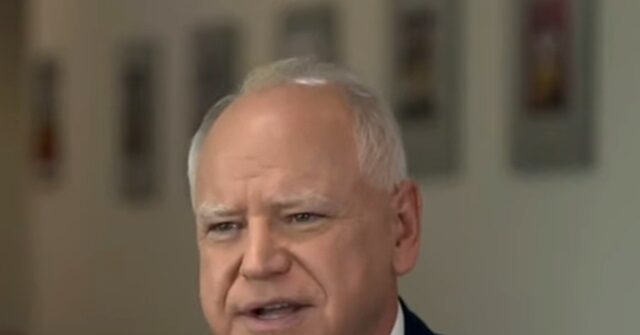In a recent interview on ABC’s “Good Morning America,” Governor Tim Walz of Minnesota, who is also the Democratic vice-presidential nominee, addressed the significant financial strains faced by middle-class families due to escalating inflation. He emphasized that price gouging plays a notable role in driving up costs that affect everyday consumers. For many people, the daily experience of grocery shopping reveals the harsh reality of higher prices, which often stem from misleading information regarding product issues, such as the recent bird flu crisis affecting egg prices. This misinformation compounds the feelings of uncertainty and frustration felt by consumers who are facing these spikes in living costs.
Walz pointed out that while data and statistics might illustrate the broader economic trends, they do little to help families grappling with financial hardship on a day-to-day basis. He stressed that the impact of such trends must be translated into tangible solutions and policies that can alleviate the burden on working families. The emphasis from the governor was on the need for concrete actions rather than mere rhetoric, stating that people want to know what plans are in place to mitigate these rising costs. Comprehensive strategies are essential for making homeownership more affordable and for implementing tax cuts that specifically benefit the middle class.
In discussing the economic landscape, the governor called attention to the perception of unfair pricing practices contributing to the inflationary environment. He urged that acknowledging the role of price gouging is critical, urging both awareness and responsive measures to combat it. This acknowledgment is particularly important in an election year where voters are increasingly concerned about their financial futures and the overall state of the economy. As Walz pointed out, consumers are eager for leadership that understands their struggles and has proposed solutions to address them directly.
The issue of false information at grocery stores highlights a larger concern about consumer trust and market transparency. Walz’s comments suggest a need for clearer communication and educational initiatives aimed at informing shoppers about the factors influencing price changes. When consumers are misled or unable to find accurate information about product pricing, it creates a cycle of confusion and frustration that can exacerbate their financial woes. Consequently, creating a more informed public may help in alleviating some of the anxiety surrounding fluctuating prices.
Walz also made a broader argument about economic responsibility and responsiveness from leadership. He noted that effective policies must not only be communicated but also enacted in a manner that truly uplifts the middle class. This calls for a strategic approach to governance that considers the complexities of economic challenges while prioritizing the needs of everyday Americans. As a vice-presidential nominee, he aims to position himself as a candidate who is actively listening to the concerns of his constituents and ready to tackle these pressing issues head-on.
In conclusion, Governor Tim Walz articulated a clear message regarding the pressures on middle-class families attributable to high inflation and price gouging during his “Good Morning America” appearance. His focus on actionable policies and the need for transparency in pricing reflects a broader concern for economic justice and accountability. As the electoral cycle progresses, the dialogue around these issues will be crucial in shaping voter sentiment and determining the future direction of policy aimed at supporting the middle class. By advocating for meaningful change and addressing misinformation directly, Walz positions himself as a leader committed to understanding and fighting for the needs of working families in America.

